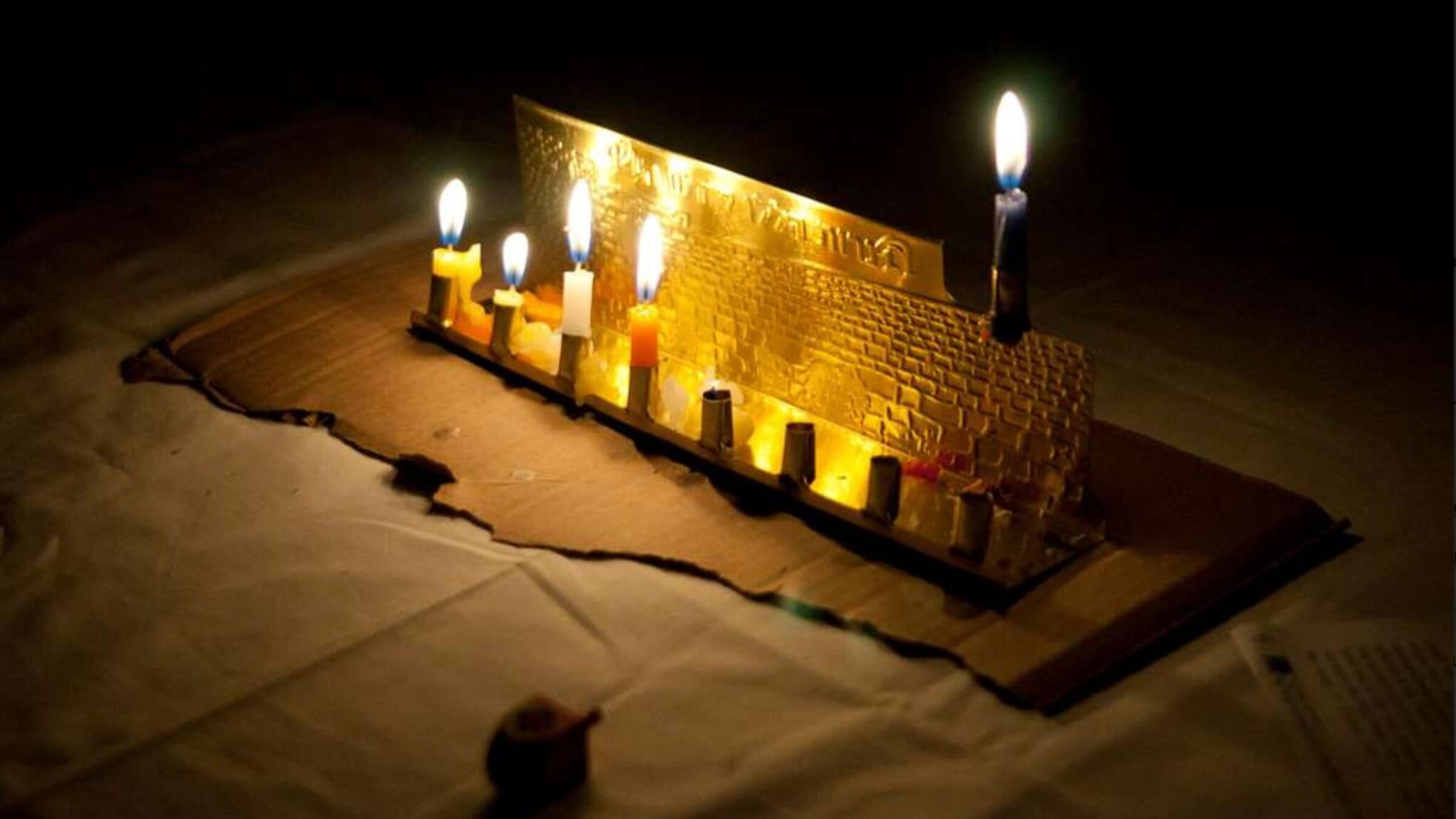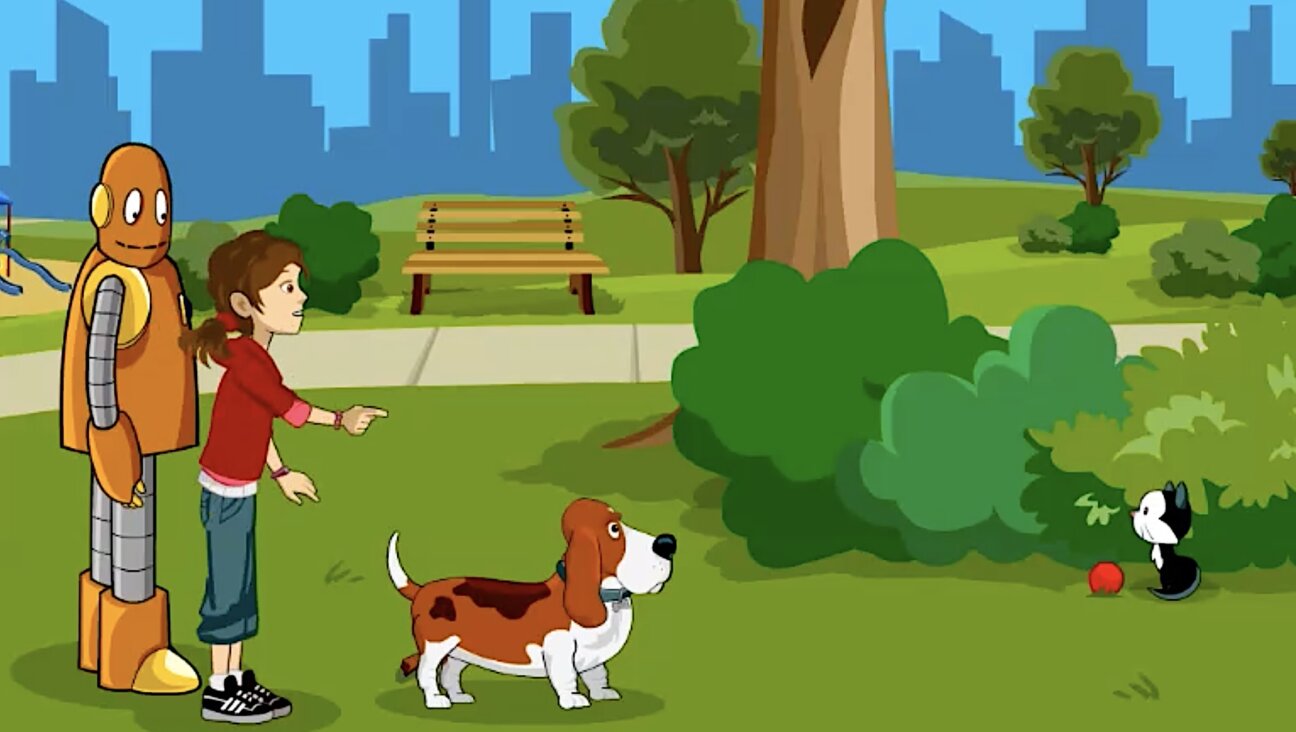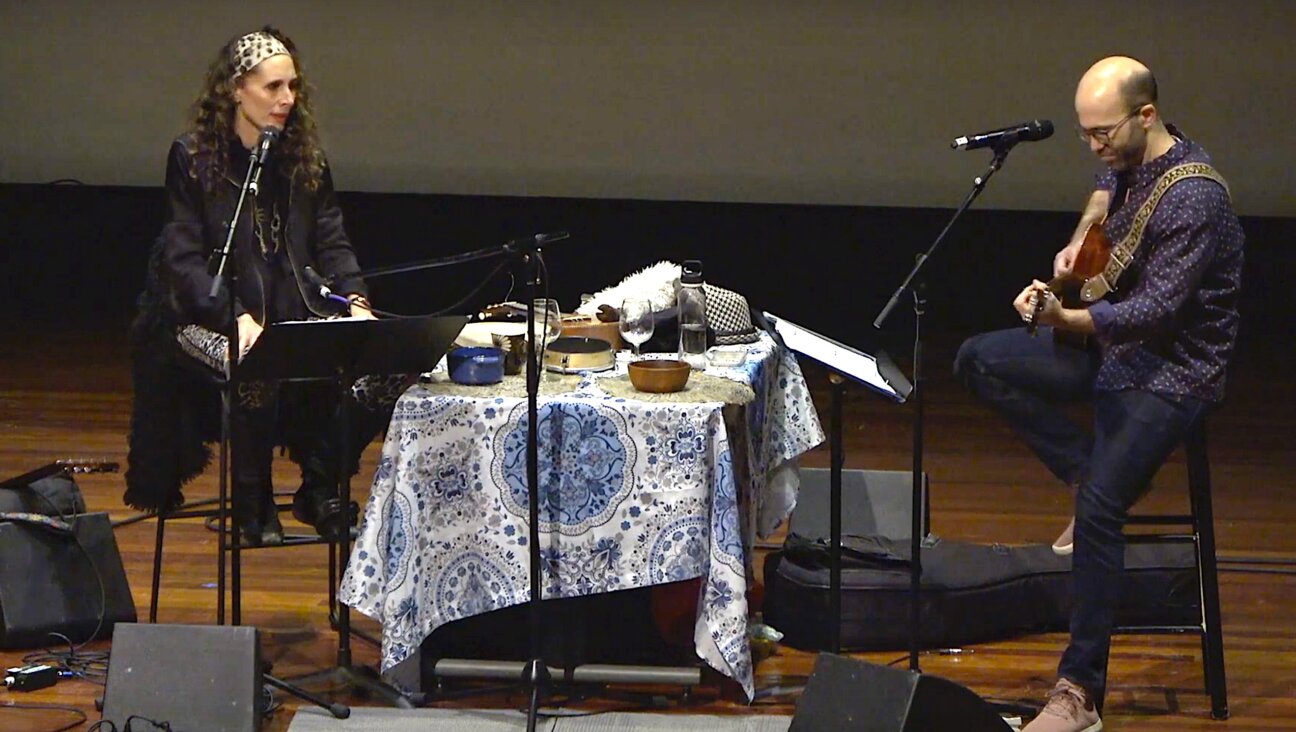VIDEO: This Yiddish Hanukkah song ponders the meaning of the candles
The narrator of the song contrasts the miracle of the oil with the suffering of the Jews under the Russian Czar

Photo by Picryl
Most American Jews know of two Yiddish Hanukkah songs, thanks to their well-known English versions: “Khanike oy khanike” and “Ikh bin a kleyner dreydl.”
Less well-known is the beautiful, and much more poignant song, “O ir kleyne likhtelekh” (“Little Candles”) based on a poem by the Lithuanian-born poet Moishe Rosenfeld (1862–1923), with music by Leo Low.
As explained in this article in Choral Review, Rosenfeld’s meditation on Hanukkah contrasts the celebrated miracle of the oil in the ancient Temple of Jerusalem with the suffering and oppression of the Jews under Russian Czar Alexander III. The text also reflects Rosenfeld’s personal beliefs as a proponent of social justice, after laboring in the sweatshops of New York as a young man.
In the song, the narrator speaks directly to the burning candles, mourning the lost Jewish sovereignty and the centuries of persecution. It’s important to keep in mind that the poet died in 1924 and wrote this at a time when there was no Israel, so the notion of Jews fighting for and gaining their homeland was just a distant dream.
As described in this article in the Milken Archive of Jewish Music, Rosenfeld was one of the most important Yiddish poets in America during the early decades of eastern European immigration. He was a pioneering force for Yiddish poetry in the United States and a leading poet of the labor movement. Born in Bolkshein, Russian Poland, he was raised in Warsaw and settled in New York in 1886. His fame as a socialist poet spread to Europe, where many of the poems he wrote in America became attached to European folk melodies and gained popularity there. The songs then traveled back to the US where workers in sweatshops and factories often sang them. They were heard at protest rallies for workers’ rights too.
Gradually, Rosenfeld also became a strong believer in promoting Jewish national consciousness, which is evident in this Hanukkah poem, with its nostalgia for ancient nationhood, defensive military might and valor. Its lyrics differ significantly from other secular American Hanukkah songs, where national aspirations are clothed in the context of the victorious Maccabean struggle for religious — not necessarily political — freedom.
Hear the song performed by the Klezmer Conservatory Band below and feel free to follow along with its English translation underneath it. To follow the lyrics in Yiddish, go here and for the transliterated version, go here.
Oh, you little candles
You tell stories
Tales on end;
You tell of struggle,
Valor and courage, of
A wondrous past.
When I see you flickering,
A sparkling reverie arises.
An old dream speaks:
“Jew, you warred once;
Jew, you were once victorious.”
God! It seems unbelievable now!
“You had a state,
To me you were a nation,
Once you governed:
Once you had a country,
Once you had power!”
Oh, how deep is the ache now!
Oh, you little lights!
Your stories
Awaken my pain;
It stirs something deep within my heart,
And with tears it asks:
“What will happen now?”
Translation by Eliyahu Mishulovin and Moshe Zeilingold through the Milken Archive of American Jewish Music
























